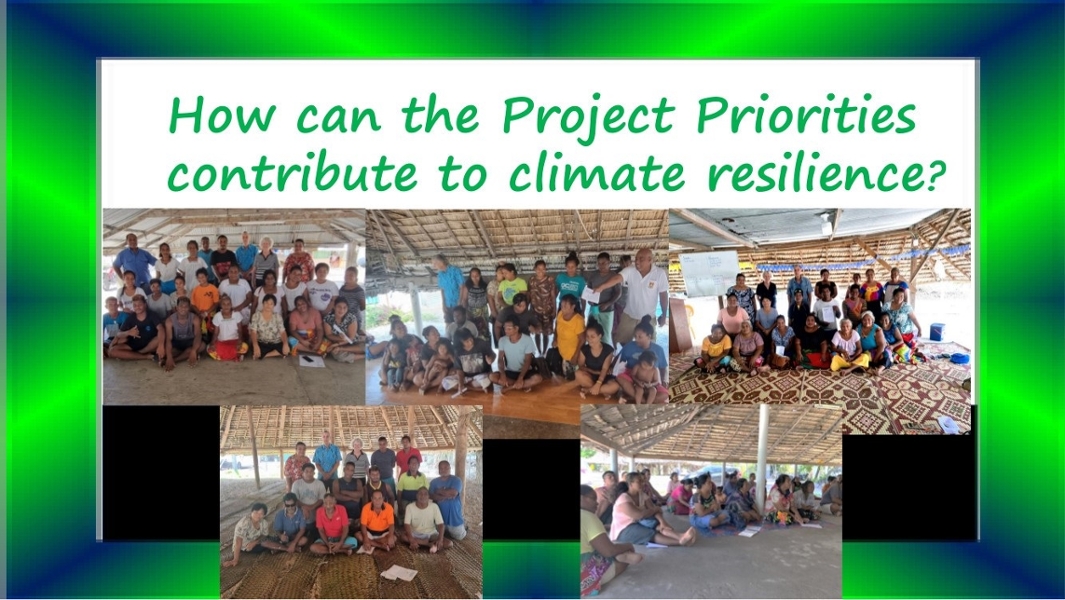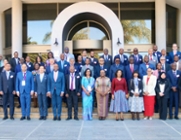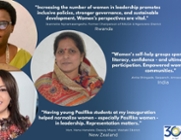A tale of cross-country collaboration: empowering Pacific communities

04 June 2024
Building resilience throughout the Commonwealth is vital. To protect against climate change, natural disasters, economic and health declines and nowhere is this more important than in the Pacific where the SIDS - or Small Island Developing States – face catastrophic impacts to any, or all of these occurrences.
Cross-country and peer-led
In 2023, a groundbreaking project was proposed for Canadian funding, setting the stage for a unique cross-country, peer-led exchange of skills and experience. This initiative was not just a project but a vibrant story of collaboration, focusing on seaweed farming, composting, and the innovative use of beach wrack. The spotlight was on the resilient communities of Samoa and Kiribati, aiming to foster climate adaptation, food security, and ecological health.
Women experts in sea grape farming
At the heart of this initiative were the women's groups from Vaisala in Samoa and Nanikai in Tarawa, Kiribati. These women, the keepers of their community’s wisdom and skills, were ready to share their knowledge. In Vaisala, the women were experts in farming sea grapes, a local food source rich in nutrients. Meanwhile, in Nanikai, the women excelled in transforming seaweed beach wrack into excellent compost, a technique that enriched their gardens.
Women from these communities were to travel to each other’s villages, demonstrating their techniques and learning from each other. This peer-led approach ensured that the knowledge was not only shared but also adapted to the specific needs and conditions of each location.
The project aimed to showcase the power of peer learning among Pacific communities, promoting inclusive economic growth and environmental stewardship. It drew from the rich experiences of previous projects by the CLGF in Kiribati and Tuvalu and the ACIAR in Samoa and Kiribati, consolidating past successes and customizing them for different cultural and environmental contexts.
The direct beneficiaries of this project were the village communities in Samoa and Kiribati, with a particular focus on women and youth. These beneficiaries gained new skills and knowledge, enabling them to establish sustainable livelihoods. Ongoing support was envisioned through other programs like the Blue and Green Development project in South Tarawa funded by the German Government and UNDP in Samoa, ensuring the project’s long-term success.
Family-based enterprises
The project aimed to establish a lasting framework for cross-country exchanges, ensuring long-term benefits in seaweed farming, composting, and future aquaponics initiatives. By encouraging family-based enterprises and inclusive economic practices, it sought to break traditional gender barriers and empower women to take on leadership roles.
However, the journey was not without its challenges. The initial plan to have women travel between Samoa and Kiribati during the Christmas season in 2023 proved difficult. Many women were engaged in church events and other local commitments, making it impossible to travel within the allotted time.
Comprehensive manual
To ensure the project's success, CLGF representative travelled to Samoa to assess the feasibility of rescheduling the exchange. This visit was fruitful, leading to the development of a comprehensive manual detailing Samoan sea grape farming techniques, which was shared with their colleagues in Kiribati. A copy of the manual is attached.
Encouraged by this progress, a new project proposal was again submitted to Canadian funders for 2024. The proposal was successful, and preparations are now underway for the exchange to take place in the third quarter of 2024.
Foundation for future collaboration
This initiative has laid a strong foundation for future collaboration. The project not only aims to empower women and promote sustainable practices but also to create a model for peer-led learning that can be replicated across the Pacific region. It is a story of empowerment, resilience, and the enduring power of community.
Brighter future for all
Through this initiative, the women of Vaisala and Nanikai, and their broader communities, will embark on a journey of learning and growth. They will show that when communities come together to share their knowledge and skills, they can create a brighter, more sustainable future for all. The upcoming exchange in 2024 promises to build on this momentum, fostering deeper connections and more robust solutions for climate resilience and food security in the Pacific.
Back to News





